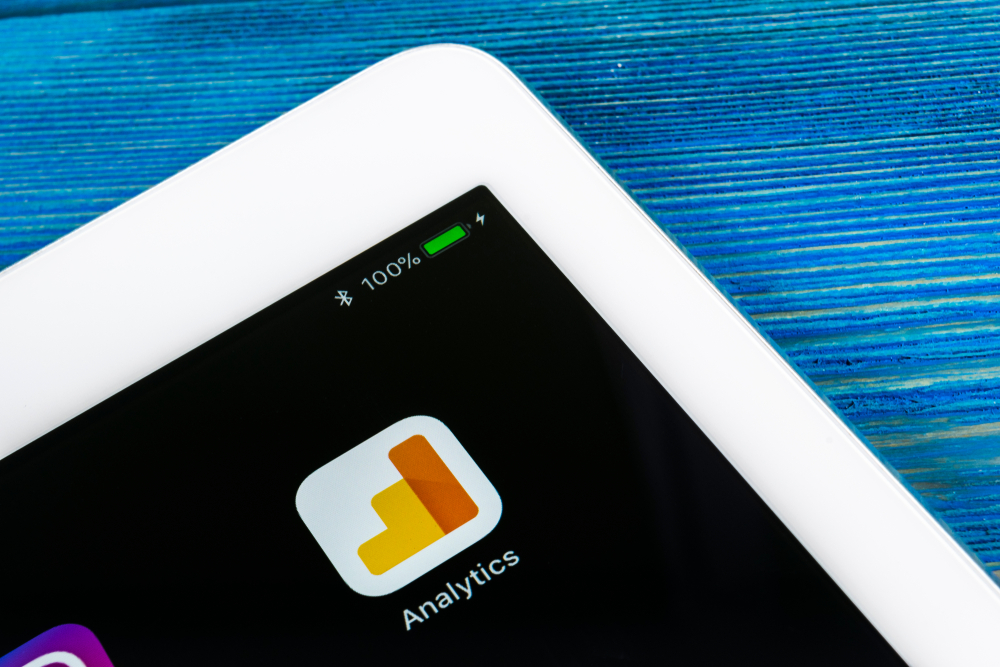![]() Posted by Cameron Francis
on
06 May , 2022
in
Digital Marketing SEO Tips
Posted by Cameron Francis
on
06 May , 2022
in
Digital Marketing SEO Tips

The latest instalment of Google analytics, Google Analytics 4 (GA4) was rolled out at the back end of 2020. GA4 is meant to be a replacement for Universal Analytics as the default analytics measurement tool in Google Analytics. Google followed up this rollout with a 2022 announcement that GA4 will be the only option available from July 1 2023.
If you are looking to learn more about GA4, you have come to the right place. This guide will take an in-depth look at Google Analytics 4 and Universal Analytics data models. Read on below to find out more about what GA4 is, how it differs from Universal Analytics and why it already has some marketers excited!
As it stands, Google Analytics 4 is now officially the recommended property type of Google Analytics. Initially, GA4 was referred to as App+Web Property in beta. The main reason for this name is that the property was capable of tracking, in one Google Analytics Property, both web and App visits, instead of separately tracking these different platform visits on different GA properties; as a result, GA4 is capable of tracking two data streams within a single GA4 property. A property is where all your company’s internet data goes for processing by Google Analytics.
App+Web Property was re-named and re-released as Google Analytics 4 in the fall of 2020. Afterwards, it was announced that this would be the only available option from July 2023.

Before the 2020 rollout of GA4, Universal Analytics was considered to be the standard for tracking. Universal Analytics was rolled out back in 2013 – and is expected to be retired in July 2023, according to the April 2020 announcement.
While GA4 uses a single property for tracking both web and app visits, Universal Analytics uses two distinct properties; one Universal Analytics property tracks website visits, while the other one tracks app visits. However, both of these properties are contained in the same Google Analytics Account.
Each property may contain multiple views in Universal Analytics – allowing for data configuration and filtration. However, this functionality is not present in Google Analytics 4.
Now that you have a basic understanding of what GA4 and Universal Analytics are, read on below to find out more about the main differences between these two Google Analytics versions.
– Measurement Models
The measurement model used by GA4 is very unique from the one used by Universal Analytics. To begin with, the measurement model used by Universal Analytics is based on sessions and pageviews.
Sessions can be defined as a collection of user interactions/hits with a site taking place over a given period of time. There can be numerous pageviews, eCommerce transactions and events in a single session.
On the other hand, GA4 uses all the data associated with a single user ID to create a single user journey. The measurement model used by GA4 is generally based on parameters and events. Basically, GA4 assumes that any sort of interaction can be captured in the form of an event.
It is worth noting that every event in Universal Analytics has its own hit type, category action and label. This is different in Google Analytics 4. Here, each hit is taken as an event – which can contain parameters, but not always.
While UA supports five-goal types including event goals, duration, page/session, destination and smart goals, GA4 only supports conversion events – i.e. user-initiated events that represent the success of your site in terms of conversions. Events in GA4 are grouped into 4 categories, including Automatically collected events, Enhanced measurement events, Recommended events and last but not least, Custom events.
– The Process Of Event Tracking
To further elaborate on the above point, the tracking of events like button clicks and link clicks is also different in both UA and GA4.
Universal Analytics basically tracks data, generated as users interact with your website, based on page views. This means that UA can track a page view every time a URL loads up. However, this also means that UA does not track any user actions that do not result in the loading of a page in the domain being tracked. To track such actions, UA requires the assistance of Google Tag Manager.

On the other hand, as previously mentioned, GA4 can track a variety of events, other than pageviews. GA4 can track link clicks on its own. However, these must be external links that lead away from the domain. To track internal link clicks, it will also need the help of Google Tag Manager. Any specific attributes or characteristics that you want to track on GA4 are referred to as custom dimensions. To configure the custom dimensions – whether user or event-based – in your GA4 property, you will need to create tags in Google Tags Manager.
– User Friendliness
GA4 is considered to be more user friendly than Universal Analytics. The main reason for this is said to be the different models used by these two versions of web analytics.
As seen above, Universal Analytics places a lot of value on the tracking of page views – a lot more than is placed on the tracking of other metrics. You need to have advanced skills in using this version of GA for you to be able to track other metrics with it.
On the flip side, GA4 places a lot of value on tracking a variety of metrics, not just page views alone. For instance, the ability to track metrics like video plays and button clicks is already built into this version of Google Analytics – meaning that you do not need to have any additional skills to get this done. By simplifying the tracking of various metrics, GA4 is considered to be beginner-friendly.
– Predictive Audiences And Metrics
Unlike UA, GA4 offers machine learning. The predictive audiences feature in GA4 relies on the use of machine learning to model future transactions and revenue. With this feature, marketers can come up with ads targeting the user base that is interested in their products; and as such, likely to make a purchase within the near future.
Google Analytics plays an essential role in the success of your online business. Through data collection and analysis GA helps you identify where your website and app traffic is coming from, track essential events (such as link clicks, downloads and video plays among others) on your website, create groups of users for targeted advertising or further analysis, and even identify organic search queries you are ranking for, and so much more.
As you can see from the above, Google Analytics 4 and Universal Analytics differ from each other in a number of ways. For starters, each one is designed to work differently – while one (UA) tracks sessions, the other (GA4) tracks events. By making it possible for you to clearly track every step that users make on your site to complete a given task, GA4 provides you with more customer-focused insights. Furthermore, thanks to its machine learning capabilities, GA4 also helps you join the dots along the customer journey.
At this point, you should be able to see why making the switch to Google Analytics 4 is a smart choice. The earlier you do so, the sooner you can start reaping the advantages of using this highly advanced GA version that comes highly recommended by Google. More importantly, by switching to GA4 now, you will save yourself from the hassle of rushing to it when Universal Analytics becomes obsolete come July 2023! At ETRAFFIC, we can seamlessly help you make the switch to Google Analytics 4. We are here to help you make the transition and take your business forward.